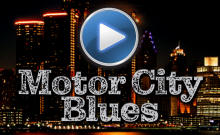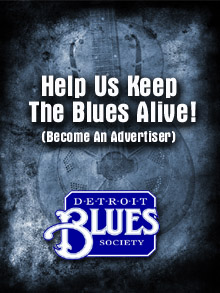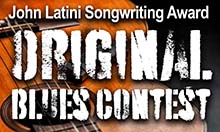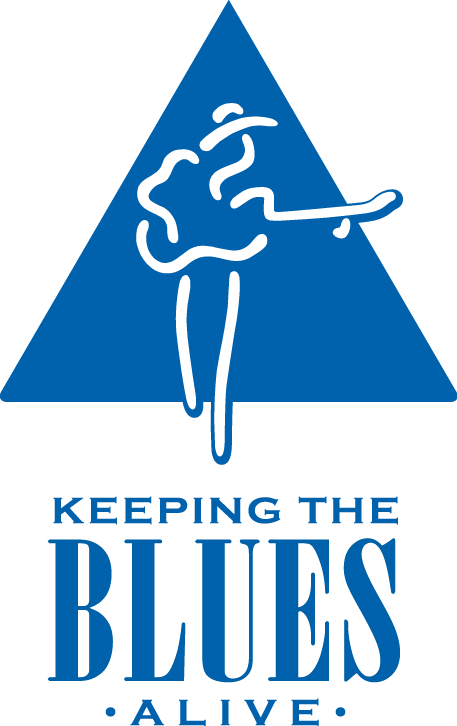|



>
|
The Beginnings -
About the Detroit Blues Society
A group of people interested in acoustic blues music joined
together to form an informal association. The first meeting was held on March
14, 1985. The name selected for the group was The Detroit Country and Classic
Blues Society. Individuals had varied reasons to gather but shared a common love
of acoustic blues music. Robert B. Jones, host of the WDET radio show “Blues
from the Lowlands”, commented that he and others enjoyed touring musicians and
wanted to have a place to jam with them during their Detroit visits.
The Society was formed and met in the First Unitarian-Universalist Church in
Detroit. Electric instruments were not allowed at the early Society meetings as
they would have been too loud for the people hosting them. The Detroit Blues
Club, a group formed by local blues musicians, was still in existence at that
time but was fading fast as key member Bobo Jenkins had passed away. By 1988 the
format began to include electric instruments and the Society met at various
locations. Included among these were Sully’s, Alvin’s, The Sunset Grill, The
Soup Kitchen and the Attic Bar. During the 1985 to 1990 period the membership
numbered around fifty. By 1990 the number of members were falling and the
Society was in danger of ceasing to exist. It was saved by the efforts of a
small group of dedicated members who began to reorganize the Society.
In January 1992 the name was changed to The Detroit Blues Society (DBS) and a
new Board of Directors was established. The primary goal at that time was to
increase public interest in the Society. Large-scale events included a number of
indoor and outdoor concerts and school workshops. Increased membership and a
more organized approach allowed the Society to embark on special projects.
Educational programs became more formalized and in 1996 the Scarab Club
Educational/Blues Heritage Series began. Each event featured a theme based on
some aspect of the Detroit blues tradition.
In 1997 the Society completed a project to place a memorial stone in Mt. Hazel
Cemetery to honor the late Eddie James “Son” House. Another project was
initiated to preserve on video the contributions of Uncle Jesse White. The DBS
has also placed stones on the graves of the Butler Twins in June of 2007 and on
the grave of Calvin Frazier in November of 2009. Others are planned in the
future.
The Detroit Blues Society (DBS) is a registered federal 501(c)(3) non-profit
organization dedicated to the preservation, education, and advancement of the
blues tradition, as it relates to the Metro-Detroit area. It has as its primary
goals to promote a wider appreciation for the blues by the general public and to
serve the members of the Society. DBS provides members with the monthly
newsletter Blues Notes. This serves to inform members and the general public
regarding relevant news, schedules of upcoming events and profiles on our
members. DBS schedules free blues jam sessions, usually on the second Saturday
of each month (January-May and September-December), arranges discounts on
merchant sponsored merchandize, discounted event tickets and administers an
educational program.
Members are encouraged to support the Society in its many activities and are
welcome to attend DBS Board meetings. DBS welcomes personal donations and
corporate sponsorship. Merchants offering a discount to DBS members will be so recognized in
the Blues Notes.
Have questions? Need information? Have interest in joining one of the volunteer
activities? Have comments, suggestion, additions or corrections to the web
information? Please let us hear from you.
For More Information, Contact Us At:
webmaster@detroitbluessociety.org
|
|
The Detroit Blues Society (DBS) is a registered federal 501(c)(3)
non-profit organization dedicated to the preservation, education, and
advancement of the blues tradition, as it relates to the Metro-Detroit area. It
has as its primary goals, to promote a wider appreciation for the Blues by
the general public and to serve the members of the Society. |





